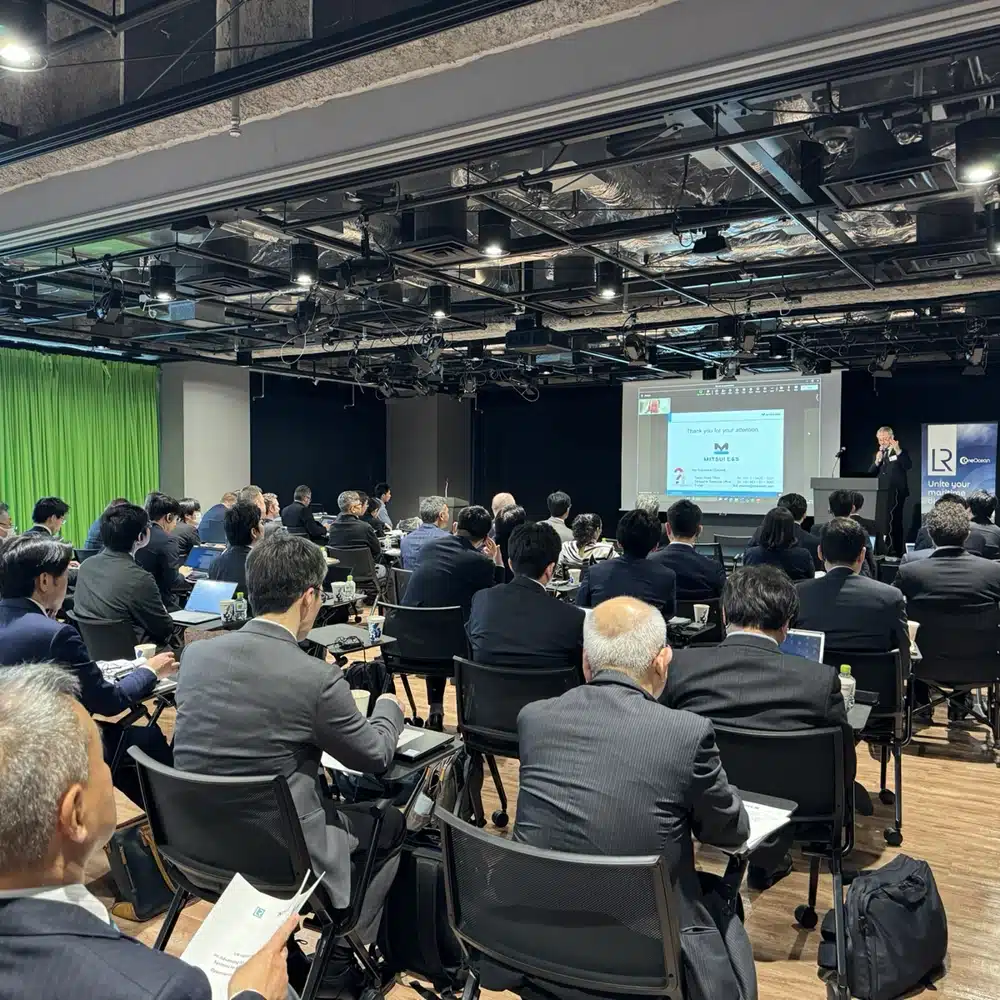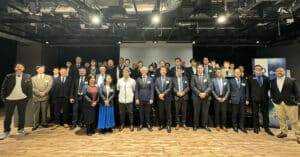UK and Japan Forge Historic Partnership to Propel Maritime Autonomy Forward
Organizations participate in a workshop between the UK and Japan to explore creative options for future collaboration on the deployment of autonomously safe marine systems.

During a four-day workshop in Japan from March 4–7, UK and Japanese partners are working together to expedite the development of an assurance framework for maritime autonomy and to start the creation of relevant regional and international rules.
Early in March, major talks involving representatives from the Japan Maritime Bureau, Japan Coast Guard, universities, research institutes, and the maritime industry were led by UK-based Lloyd’s Register (LR) and the National Physical Laboratory (NPL). Notable Japanese participants in the DFFAS+ Project, an initiative supported by the Nippon Foundation, included NYK, MOL, and K-LINE. The goal of the project was to design the Future Fully Autonomous Ship of Japan.

The goal of the discussions was to help UK and Japanese regulators better grasp the potential of autonomy in the maritime industry, provide a framework of assurance for its safe and dependable adoption, and create a plan for taking advantage of the opportunities that autonomy presents.
Japan wants physical demonstrator ships to be sailing by the middle of 2025, and by 2026, it wants to have ships operating in Japanese seas at LR’s autonomy level 4 (AL4). To achieve these goals, LR and NPL have decided to encourage the quickening of validation and verification processes in tandem with technological advancement and implementation, encompassing aspects like collision prevention, training, and security monitoring.
The goal of these initiatives is to advance the creation of a suitable regulatory environment in the UK, Japan, and other regions for the development, testing, innovation, and commercialization of safe and efficient autonomous boats and related technology.
The assurance framework comes from the Maritime Autonomy Assurance Testbed (MAAT), a UK-based cooperation headed by LR and NPL. Its objective is to create a certification and testing programme that will enable safe deployment.
The market for autonomy and artificial intelligence (AI) is growing quickly; in April 2023, Outside of the Box, a joint report by Lloyd’s Register and Thetius, was released. The report predicted that the market would be valued at $1.47 billion in 2023 and grow at a compound annual growth rate (CAGR) of 22% over the next five years, reaching $3.09 billion by 2028.
Key objectives of the UK-Japan partnership include:
- Research and Development Collaboration: Facilitating joint research initiatives and technology exchange programs to drive innovation in maritime autonomy.
- Regulatory Alignment: Working towards harmonizing regulatory frameworks to enable the safe and seamless integration of autonomous technologies into maritime operations.
- Industry Engagement: Engaging with industry stakeholders to promote adoption and implementation of autonomous systems across various maritime sectors.
- Skills Development: Investing in education and training programs to cultivate a skilled workforce capable of developing, operating, and maintaining autonomous maritime technologies.
- International Leadership: Demonstrating global leadership in maritime innovation and advocating for international cooperation on autonomous maritime initiatives.
“There is innovative research taking place in maritime automation, and LR is privileged to be involved in conversations with leaders in this field,” stated Tony Boylen, Principal Specialist Autonomy at Lloyd’s Register. Recent conversations indicate that industry and government in Japan and the UK are becoming more and more in agreement. We eagerly await the chance to collaborate with others in order to create an assurance system that will inspire confidence in maritime autonomy among investors and researchers.
The recent meetings have highlighted both the level of innovation and future capability of these technologies, as well as the importance of collaboration to accelerate the pace at which autonomous ships can be deployed operationally, stated Andre Burgess, Lead for Partnerships at the National Physical Laboratory (NPL) in Assured Autonomy. In order to achieve this goal, we are eager to create new research and innovation-driven collaborations between the UK and Japan.
Work in this area is continuing with a UK-led Summit on Maritime Autonomy, taking place on 18 April during Singapore Maritime Week. It sets out to share the latest insights on developments in Maritime Autonomous technologies and operational use cases, as well as outputs from existing research on testing, standards and assurance.
The UK-Japan partnership on maritime autonomy exemplifies the spirit of international cooperation and innovation, setting a precedent for collaboration in addressing complex challenges facing the maritime industry.
